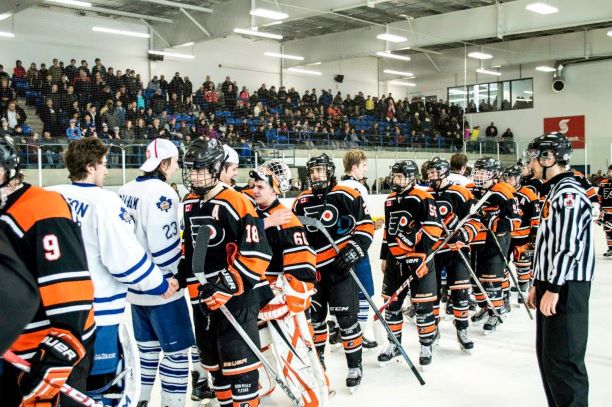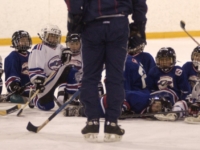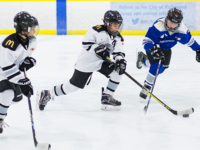It’s no secret that proper nutrition plays a big role in the life of any athlete. Top-notch players need the best fuel possible for their bodies to reach their peak performance. However, one aspect of playing hockey that can often clash with a player’s motivation to eat properly is travel; Out of town Tournaments.
For most people, travelling to a new place can be an excuse to temporarily give up on eating healthy. I won’t have a proper kitchen; I won’t have time to prepare a healthy meal; I want to experience the local food, not be worried about nutrition; the excuses are endless. But believe it or not, there is a set of simple guidelines for eating well while on the road that any hockey player can easily apply.
Yes, you’ll be eating out a lot. Aside from healthy snacks you bring along, restaurant visits will comprise basically every meal except for continental breakfasts at your hotel. Therefore, managing a restaurant menu and being able to weed out the good, healthy options from the unhealthy ones is crucial to staying in peak physical condition for your away games.
Calorie Count
Most restaurants must provide nutrition information for the food they serve to customers, and at bare minimum, this means providing the number of calories that each of their dishes contains. This comes with a large disclaimer, however: don’t get too caught up in finding the meal with the smallest number of calories and always ordering it. In general, a smaller number of calories means a healthier meal, but this isn’t always the case, especially for a hockey player, who has a specialized diet to ensure the best possible performance on the ice.
For example, if a restaurant serves a chicken dish with brown rice and steamed veggies at 700 calories and a large garden salad at 375 calories, the chicken dish is the obvious better choice for a hockey player, who will benefit from the lean protein and carbs.
The calorie count of a dish certainly shouldn’t be the only consideration when ordering a meal from a restaurant, but above anything else, it can be used as a general guideline for what to order and what not to order.
Carbs Are Your Friend
Any hockey player looking to be serious about their game should learn to love carbohydrates. Some common examples of carb-rich foods are breads, whole grain foods, vegetables, and nuts. There are two types of carbs: Slow-release carbs, and fast-release carbs. The difference is in how fast your body can break down the carbohydrate molecules into sugar to boost your energy.
Slow-release carbs are good to eat earlier in the day, and especially a few hours before games; they can keep your body energized for long periods of time. Some examples of slow-release carbs are vegetables, fruits, nuts, brown rice and oats.
Fast-release carbs are very helpful to eat after a practice or a game, but not usually any other time. They provide a quick burst of energy, but afterwards your body will suffer a minor “crash”. Examples of fast-release carbs are white rice and white bread, cereals, and candy.
So, when choosing a meal at a restaurant, make carbs a priority, especially slow-release carbs. Your body will thank you later when you have more than enough energy to dominate in that night’s hockey game.
Other Considerations
Another aspect of nutrition to consider when eating on the road is protein consumption. A great rule to follow for moderating protein consumption is that you should be consuming your body weight in grams of protein. For example, if a player weighs 180lbs, they should be aiming to consume 180g of protein a day. This will go a long way towards developing muscle mass.
While restaurants won’t always show the amount of protein in their dishes on the menu, that information is certainly public, and you can always find out.
Also, hydration is crucial whether you’re on the road or not. Staying consistently hydrated throughout the day is critical to maintaining your potential for outstanding physical performance. Water, coupled with a glass of milk every so often is a great way to keep healthy and hydrated. After a game, your body needs to quickly increase its electrolyte levels, so sport drinks are a great option here.
Although eating out at restaurants while on road trips can be a challenge for a hockey player, there are certainly strategies and guidelines to be able to manage it. Once these become habitual, you’ll be confident in your nutrition on the road, and ready to dominate your away games.






